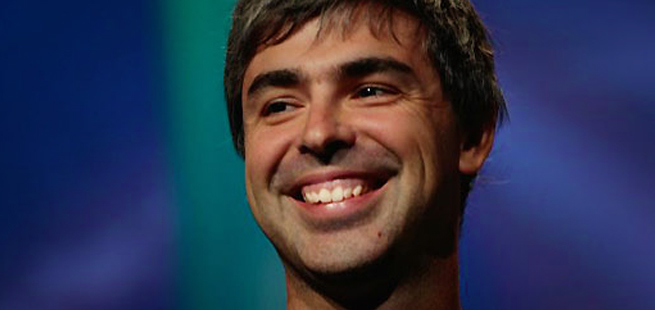Want smarter insights in your inbox? Sign up for our weekly newsletters to get only what matters to enterprise AI, data, and security leaders. Subscribe Now

In its quarterly earnings statement today, Google announced it would for the first time in its history be splitting its stock.
“Today, we announce plans to create a new class of non-voting stock,” Google CEO Larry Page (pictured) said Thursday in an investors call.
In the same call, the company announced its Q1 2012 earnings, showing revenues up 24 percent year-over-year to a healthy $10.65 billion.
Emphasizing that the non-voting nature of the new class of stock would not have much of an impact on how the company is controlled, the search-giant co-founder continued, “This proposal will only have an effect on governance in the very long term… We are honored that so many of you have put your trust in us.”
The statement about trust speaks to the voting rights maintained by Google’s founders, who each get ten votes per share of stock they hold. The arrangement is akin to how Facebook CEO Mark Zuckerberg arranged to maintain control of his company and board following the social network’s highly anticipated IPO.
And speaking of Facebook, Google is picking a strategic time to split its stock. The social network is Google’s biggest rival — and its strongest competitor for the ad dollars that make up a whopping 96 percent of Google’s revenue. By splitting its stock just weeks (in all likelihood) before Facebook’s IPO, Google is sending a message to potential investors: Bet on us. We’re a sure thing. We’ve been around for eight years, and we’re only getting more valuable over time.
In the past, Google management has stated the company is averse to stock splits, especially as the company’s share prices edged higher and higher over the past decade, making it more difficult for average consumers to consider investing in the company. Page today reiterated that Google’s current dual-class structure’s bias toward stability will be maintained in the new split and that investors would still be betting heavily on the company’s leadership and founders.
In today’s two-for-one split, each current shareholder will get an additional non-voting share for each share of Google stock he or she currently holds. In other words, if I owned 100 shares of Google stock, I would close the day with 200 shares of Google stock.*
These new shares will also be used for equity-based employee compensation.
Google SVP David Drummond gave more details about the stock split, saying that Class C stock will have equivalent rights to Class A and Class B stock, but without voting privileges. Existing shares will continue to trade, and Class C shares will also be publicly listed.
Typically in a two-for-one split, the share price is adjusted accordingly so that Google shares, which are currently trading at around $650 each, will see a dip down to half that amount, roughly $325 per share. But the price will not likely stay that low for long, meaning potential (and less-than-wealthy) investors have a great chance to hop onboard the Google bandwagon before shares become unattainably expensive again.
Google made its initial public offering in 2004 at $85 per share, peaking at $714.87 on December 7, 2007. During 2007, the Google executive team had to consistently douse rumors of a stock split.
Google’s shares have topped tech stocks for some time; in fact, Apple stock prices surpassed Google’s for the first time ever earlier this month — an apparent fluke, as Google’s share price is currently hovering around $36 higher than its rival’s.

*Note: This example was for illustrative purposes only. None of the VentureBeat writers, myself included, own technology stock, and we are prohibited from buying tech stock in our company’s ethics statement.

